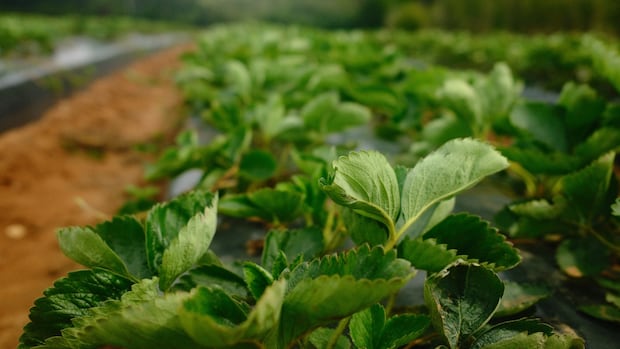Climate Crisis Threatens Kenyan Tea Farms and Livelihoods
Kenyan tea farmers, who supply around 50% of the UK's daily tea consumption, are facing a severe threat from the climate crisis. Erratic weather patterns, including droughts and landslides, are devastating crops and threatening the livelihoods of hundreds of thousands of smallholder farmers like Nancy Githaiga, manager of the Gatunguru Tea Factory.
The Impact on Tea Production
Unpredictable weather is disrupting traditional farming practices. Nancy Githaiga describes how unseasonably cold temperatures have slowed tea bush growth, reducing harvesting days. She recounts the devastation caused by landslides, impacting homes and infrastructure. Production at Gatunguru declined by 25% last year, a worrying trend signaling further hardship.
"This climate problem is really major for us. I believe that if things continue the way they are, the very existence of tea farming in this area will be threatened." - Nancy Githaiga
In the west of Kenya, farmer Edmund Biwott is battling hailstones, a new weather phenomenon that ruins tea leaves. The frequency of hailstorms has significantly increased, forcing him to prune his bushes prematurely and drastically reducing his yield. He relies heavily on tea farming to support his family.
Economic Hardship and Market Challenges
Despite lower production, farmers aren't seeing higher prices due to chronic oversupply in the Kenyan tea market. According to Bernard Njoroge, a senior program officer at Fairtrade Africa, past government policies haven't helped, further exacerbating the economic difficulties faced by these farmers. One in five Kenyan tea growers earn enough to support their families.
Tea farmers are taking out loans to cover basic necessities, like school fees, due to reduced incomes. This creates a cycle of debt and despair, highlighting the urgent need for sustainable solutions. The industry is a cornerstone of the Kenyan economy, making the challenges particularly impactful.
Fairtrade and Sustainable Solutions
Fairtrade certification provides crucial support through training, better farming practices, and premium payments. Farmers like Luke Wahome have significantly increased their yields through Fairtrade-supported training. Diversification, such as growing avocados and passion fruit, is another strategy, as implemented by Martha Mukundi with support from Fairtrade, to mitigate the impact of tea crop failures. Diversifying the crops can provide alternative income streams.
"The practices that I learnt through training has allowed me to increase my yield from 400kg per year to 1,200kg per year." - Luke Wahome
Eleanor Harrison, CEO of Fairtrade UK, emphasizes the significant economic benefits of the Fairtrade Premium for farmers. Sainsbury's decision to certify its own-brand tea as Fairtrade will provide a million pounds annually in premiums to farmers. Other brands like Yorkshire Tea (Taylors of Harrogate) and Tetley (Tata Consumer Products) claim to prioritize sustainable and ethical sourcing, including soil management, rainwater harvesting, and drip irrigation.
The Role of Major Tea Brands
While major tea brands express commitment to sustainability, challenges remain. Gareth Mead of Lipton (PG Tips) cites "chronic overproduction" as the main problem. Only 10% of tea sales in the UK are Fairtrade, with brands such as The Co-op, M&S, Clipper and Waitrose being strong supporters.
Fairtrade argues that major brands can play a vital role in alleviating poverty and empowering tea growers. Even with cost of living pressures, consumers want clear information on prices paid to producers, as demonstrated by recent polling data. The impact of the Fairtrade movement is significant and has helped two million farmers.
 Visit the website
Visit the website





